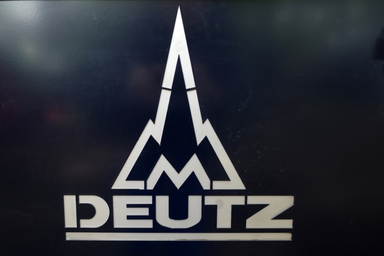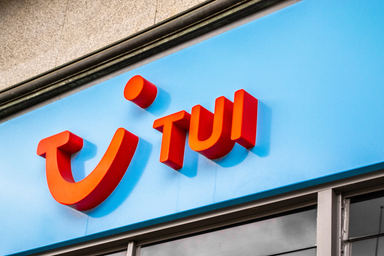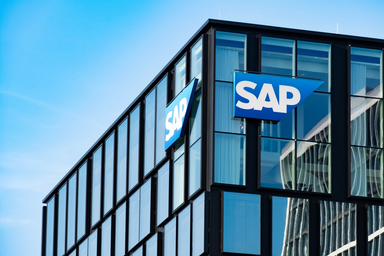Featured articles

DAX 40 continues to push to new highs
The DAX 40 sees six consecutive days of gains as the index pushes to new highs driven by risk-on sentiment
09:54, 12 January 2026

From Caracas to Wall Street: how the U.S.–Venezuela crisis could move markets
The start of the new year has marked a dramatic escalation in the United States’ confrontation with Venezuela.
08:53, 9 January 2026

Intel stock split: what it means for traders
Intel’s long history of stock splits reflects the company’s evolution through several major technology cycles, from early PC growth to data-centric expansion. With its most recent split taking place more than two decades ago, questions often arise about whether Intel may adjust its share structure again.
15:49, 19 December 2025

Deutsche Telekom stock forecast: Q4 Results and 2026 Guidance
Deutsche Telekom is a German telecoms group that recently reported Q4 2025 results and 2026 guidance, outlining modest revenue and EBITDA growth, continued T-Mobile US strength, and updated dividend and buyback plans. Explore third-party DTE price targets and technical analysis.
29 minutes ago

DEUTZ stock forecast: TYTAN partnership and BlackRock stake
Deutz AG is a German engine manufacturer listed in Frankfurt, recently announcing a partnership with TYTAN Technologies and confirming BlackRock’s 3% voting-rights threshold disclosure. Explore third-party DEZ price targets and technical analysis.
36 minutes ago

TUI stock forecast: Q1 EBIT and 2026 guidance
TUI AG is a Germany-based travel and tourism group listed in Frankfurt, recently reporting Q1 underlying EBIT of about €77m on €4.9bn revenue and reaffirming its 2026 growth guidance amid steady booking trends. Explore third-party TUI1 price targets and technical analysis.
55 minutes ago

SAP stock forecast: Q4 results and €10bn buyback
SAP SE is a Germany-based enterprise software company. Markets are assessing its 2025 results, including 8% revenue growth, a €10bn buyback plan and continued cloud and AI expansion. Explore third-party SAP price targets. Past performance is not a reliable indicator of future results.
.
an hour ago

NVIDIA ignites risk appetite as markets close the week on a stronger footing
NVIDIA's strong results drive sentiment higher as investors had began to doubt the AI narrative.
11:43, 26 February 2026

Market Mondays: Markets Rattled as Tariff Uncertainty Returns
Markets digest the latest ruling on Trump's tariffs and how the administration may look for other avenues to impose higher duties.
11:32, 23 February 2026

Trading the Dow 30 as Tariff Uncertainty Returns
Red in the futures market sees contained retreat continuing to test its shorter-term technicals, while in sentiment there’s been a shift to net short among CoT speculators.
08:09, 23 February 2026

Cooling but not cracking: The UK’s delicate economic balance
The UK economy is showing signs of fatigue with minimal growth and a slowing labour market, but inflation still remains above target.
10:38, 18 February 2026

NVIDIA ignites risk appetite as markets close the week on a stronger footing
NVIDIA's strong results drive sentiment higher as investors had began to doubt the AI narrative.
11:43, 26 February 2026

Market Mondays: Markets Rattled as Tariff Uncertainty Returns
Markets digest the latest ruling on Trump's tariffs and how the administration may look for other avenues to impose higher duties.
11:32, 23 February 2026

Oil Climbs as Geopolitical Risk Returns
Oil prices rise as markets price in a higher chance that the escalating conflict between Iran and the US could cause supply disruption.
11:26, 19 February 2026

Market Mondays: Volatility Dominates as Precious Metals Lead the Narrative
Markets trade with caution after the recent volatility as traders await the latest employment and inflation data from the US.
11:36, 9 February 2026

EUR/JPY forecast: Latest PMI & CPI release
EUR/JPY represents the exchange rate between the euro and the Japanese yen, reflecting relative economic performance, central bank policy expectations and shifts in global capital flows. Explore third-party EUR/JPY forecasts and technical analysis.
4 hours ago

NVIDIA ignites risk appetite as markets close the week on a stronger footing
NVIDIA's strong results drive sentiment higher as investors had began to doubt the AI narrative.
11:43, 26 February 2026

Market Mondays: Markets Rattled as Tariff Uncertainty Returns
Markets digest the latest ruling on Trump's tariffs and how the administration may look for other avenues to impose higher duties.
11:32, 23 February 2026

Cooling but not cracking: The UK’s delicate economic balance
The UK economy is showing signs of fatigue with minimal growth and a slowing labour market, but inflation still remains above target.
10:38, 18 February 2026

Zcash price prediction: Third-party outlook
Zcash (ZEC) is a decentralised cryptocurrency launched in 2016, designed to offer optional transaction privacy, and it trades on major crypto exchanges against the US dollar and other digital assets. Explore third-party ZEC price targets and technical analysis.
12:08, 18 February 2026

Pi Network price prediction: Third-party outlook
Explore third-party PI price targets and technical analysis.
11:35, 18 February 2026

BitTorrent price prediction: Third-party outlook
BitTorrent (BTT) is a crypto token associated with the BitTorrent protocol and the Tron blockchain, trading at fractions of a US dollar within a market shaped by liquidity, regulation and broader crypto trends. Explore third-party BTT price targets and technical analysis.
12:25, 17 February 2026

Fartcoin price prediction: Third-party outlook
Fartcoin (FARTCOIN) is a Solana-based cryptocurrency that trades on digital asset exchanges and has recorded notable price volatility since launch, reflecting shifts in liquidity and broader crypto market conditions. Explore third-party FARTCOIN price targets and technical analysis.
11:08, 17 February 2026
